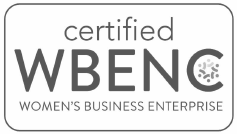There are few things more frightful than a content marketing campaign that isn’t meeting its benchmarks. Content marketing – also known as inbound marketing – campaigns closely align marketing with sales and are responsible for helping to maintain a pipeline of fresh and qualified leads. In order to maximize the impact of your content marketing program, beware of these content marketing myths.
Myth #1: Build it and they will come
How we wish this were true. While writing relevant and optimized online marketing content such as blog posts, website copy and social media marketing updates can help attract qualified audiences to your website, this alone is not enough to generate goal-breaking results. Effective content marketing programs include strategic distribution plans for each and every piece of content, including the number of times it is shared, through which channels, to which reach audiences and how the success of that distribution will be measured.
Myth #2: Quantity trumps quality
Feeding the content beast can be a challenge. Your target audiences are consistently craving new educational content and, as their trusted source, you need to keep the thought leadership coming. In order to ensure a high caliber of quality is maintained, be realistic about the number of marketing channels you can effectively maintain. If your clients and prospects are most active and engaged on LinkedIn, perhaps scaling back on your Facebook presence is a helpful way to reallocate resources and maximize your effectiveness.
Myth #3: One size fits all
For companies who work in multiple verticals or have target audiences that are demographically diverse, customization is key. While some people are visual thinkers, others crave detailed explanations and timely data. Similarly, some people love Facebook while others prefer Twitter. Understanding the communications preferences of your target audiences is an important first step when building or refining a content marketing program. If you haven’t done so recently, consider deploying a short electronic survey to your stakeholders to determine what types of content they are most interested in receiving from your organization and through which channels.
Myth #4: Integration isn’t important
At the onset of the social media marketing movement, there was often debate over who owned social media – was it the marketing department or the PR department? While the debates surrounding this topic were lively, the answer was apparent – neither team owned social media. It was a shared communication channel not just between those two teams, but among those two teams, the sales department and a company’s online communities.
In a competitive business environment where marketing is expected to deliver measurable results, an integrated approach to marketing is imperative. From the thought leaders in the company to the marketers responsible for implementation to the sales team who is interfacing directly with clients, the more brainpower behind the program and the greater the alignment between leadership, sales and marketing, the more effective your content marketing program will be.
Content marketing programs help companies to establish themselves as thought leaders in their industry, turn their websites into online lead generation hubs, and expand the reach of their marketing content. By avoiding these pervasive content marketing myths, your company can reap the benefits of content marketing and effectively tie marketing to its sales cycle.
Looking to get up to speed on content marketing best practices? Contact us today!

